‘Her disease melted away’: Clinical trial helps patient beat breast cancer, avoid harsh chemotherapy
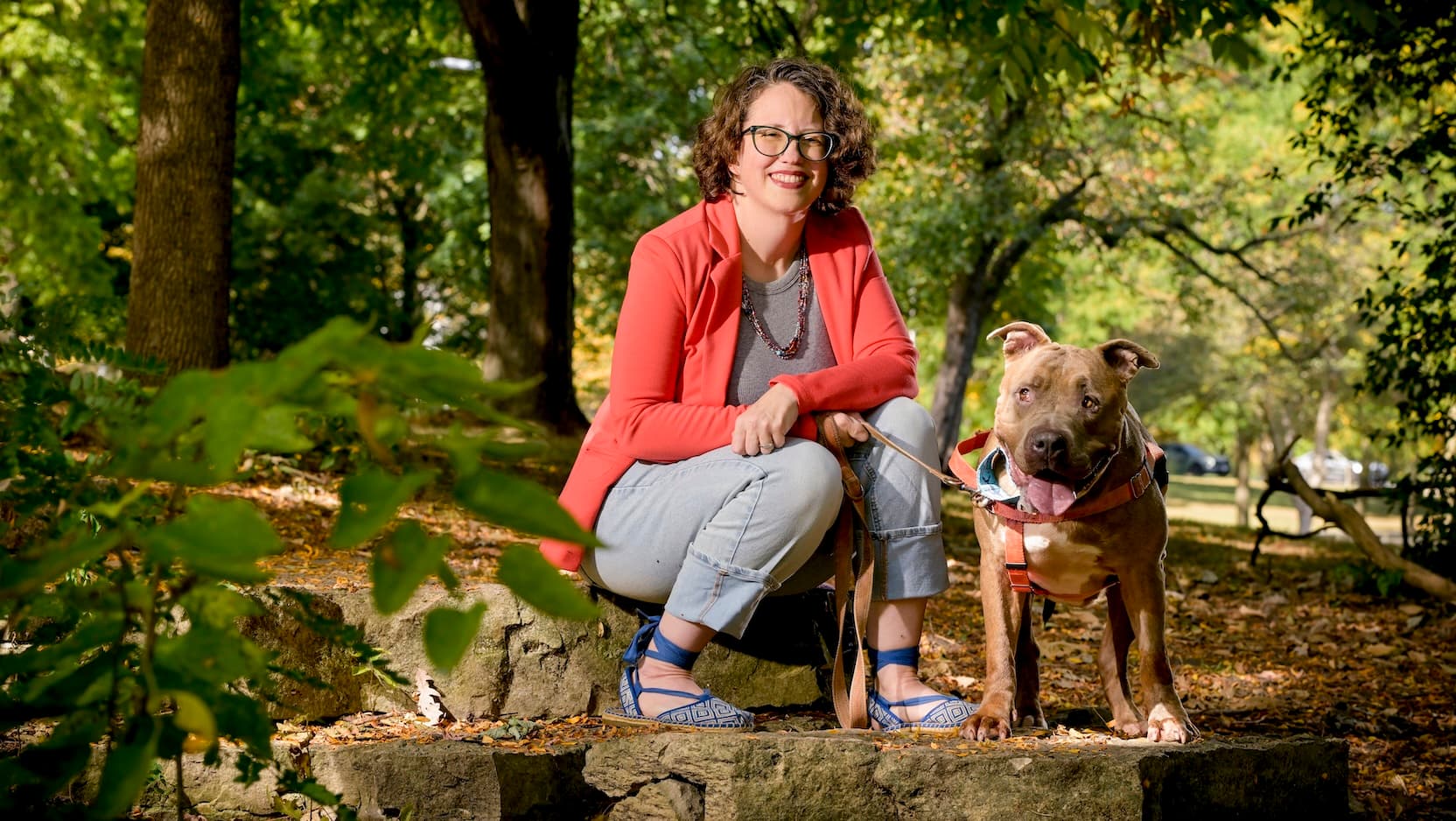
By the time Crystal Hendricks-Kretzer came to the University of Chicago Medicine in June 2023, her breast cancer was growing quickly. A tumor in her left breast had spread to her lymph nodes.
“She was someone I was very worried about,” said UChicago Medicine oncologist Nora Jaskowiak, MD.
Medicines and treatments could effectively target the highly aggressive, triple-positive breast cancer that Hendricks-Kretzer had. But she’d need almost all of them: immunotherapy, surgery and three types of chemotherapy — including doxorubicin, nicknamed “the red devil” due to its harsh side effects.
Still, Hendricks-Kretzer was given options by her UChicago Medicine Comprehensive Cancer Center care team.
Among them: enrolling in one of UChicago Medicine’s many clinical trials for breast cancer.
One was the I-SPY2 clinical trial, a long-running, nationwide study aimed at developing targeted, personalized breast cancer treatments. If a treatment worked, Jaskowiak said, it could shrink her cancerous tumors or possibly spare her from needing doxorubicin.
“She built a decision-tree diagram for me and did a great job of explaining how each treatment option would work,” said Hendricks-Kretzer, a 44-year-old Northwest Side resident. “By the end, I felt like I had a path. She really empowered me at that appointment, and I felt optimistic.”
Precision treatment for breast cancer
The ongoing I-SPY2 study uses gene expression data to identify biomarkers that can predict which tumors are most likely to respond to specific treatments.
“It’s a very personalized way to treat breast cancer, and it gives the patients more shots at the goal of targeting the tumor and avoiding the most toxic chemotherapy,” said UChicago Medicine oncologist Frederick Howard, MD, one of the trial’s investigators and Hendricks-Kretzer’s doctor.
“New therapies are being continuously investigated on this trial platform, although patients can also choose to receive standard treatment regimens with personalization of treatment based on response.”
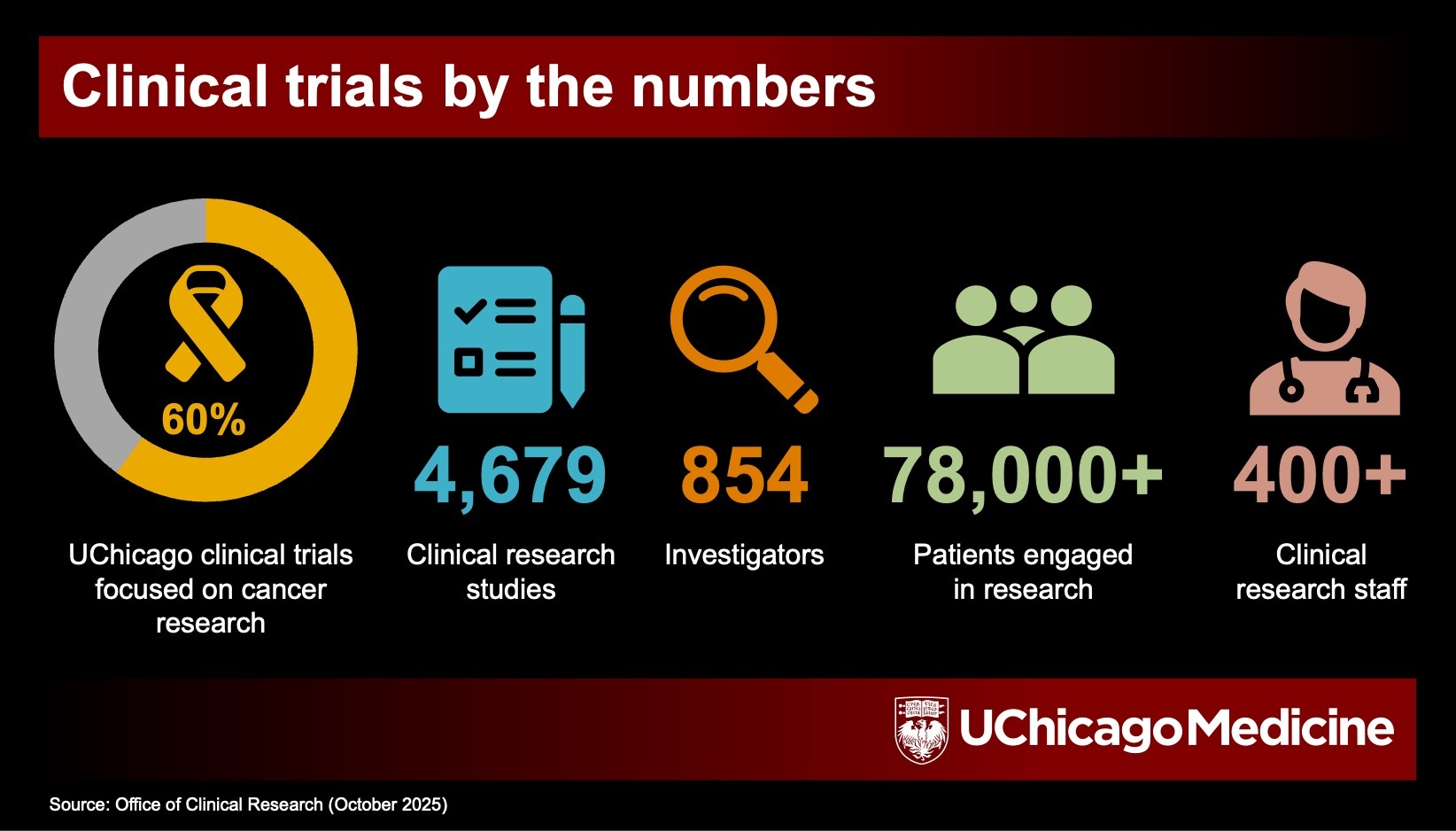
Before enrolling in the trial, Hendricks-Kretzer avoided using online searches to influence her choices.
“I decided I was really going to lean into UChicago Medicine’s expertise and not go out searching for my own information, because I knew I wouldn’t be able to understand or determine what information was good and what wasn’t,” she said. “I would place my full faith and trust in them.”
‘Amazing response’ to targeted therapy
Hendricks-Kretzer received a novel antibody-drug conjugate treatment followed by 12 weeks of standard chemotherapy. After that, doctors detected no cancer in her MRI scans, which allowed her to skip the “red devil” chemotherapy.
It also sped up the timing of her single mastectomy surgery and her other targeted therapy treatments.
“She had this amazing response to her therapy and her disease melted away,” Jaskowiak said. “It was stunning.”
While many targeted drugs are now available to cancer patients, clinical trials offer access to cutting-edge treatments that may offer even more precision, Jaskowiak said.
“Instead of just saying: ‘We’re going to give you super toxic medicine that kills everything around it,’ we can offer a more targeted therapy — and that’s what the future is all about,” Jaskowiak said.
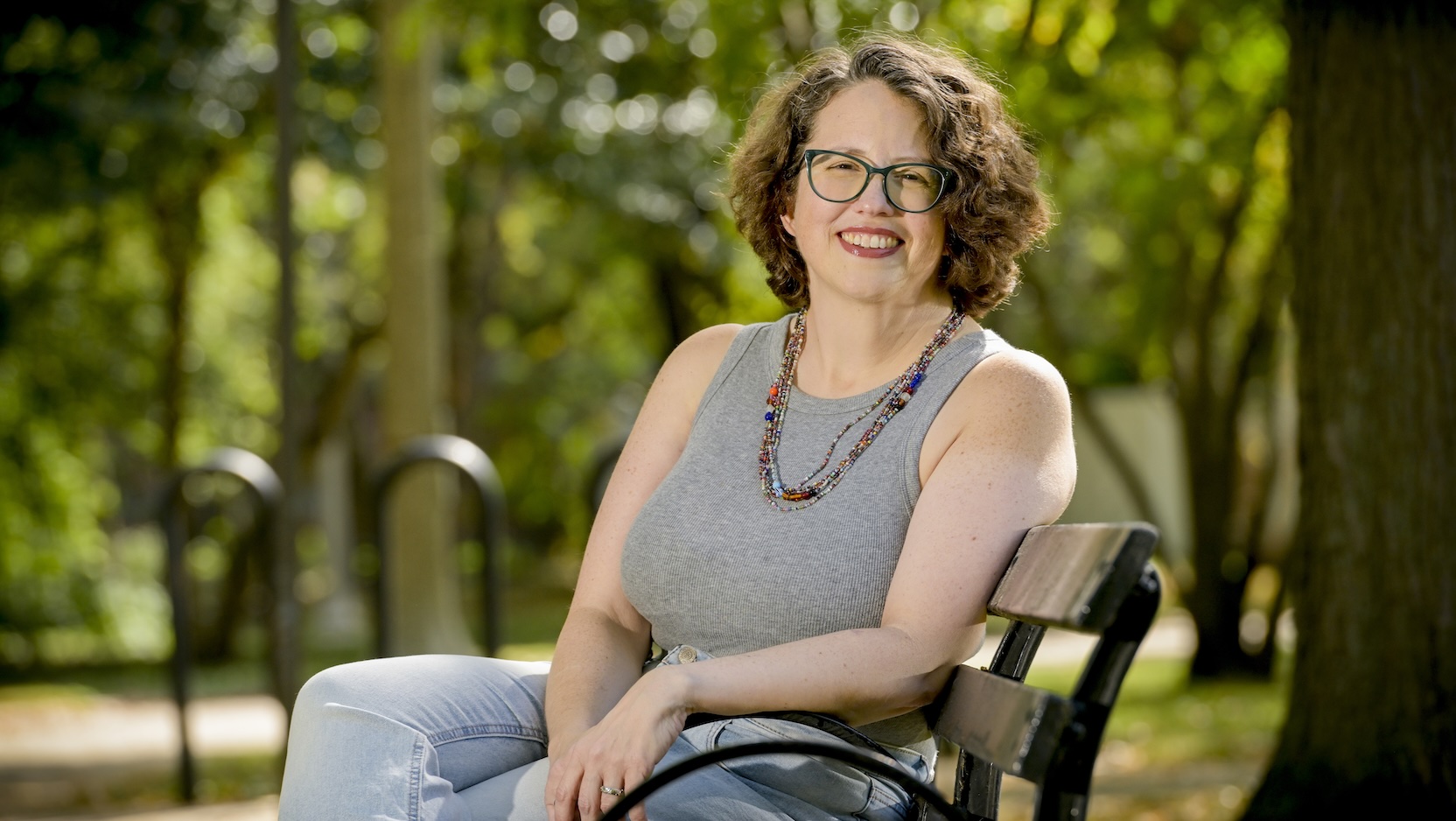
Life after breast cancer treatment
Today, Hendricks-Kretzer is cancer-free. Her spare time is filled with reading, crochet, strength training and playing with her newly adopted dog, Persephone.
She will need to take anti-estrogen medication for the next five years, plus have regular mammograms and MRIs, Jaskowiak said.
The clinical trial not only impacted her health; it gave her a voice. Hendricks-Kretzer has become active in patient and research advocacy with several organizations, including the American Cancer Society and the National Breast Cancer Coalition.
“It’s important that people know about their options when it comes to clinical trials, and it’s critical that the patient voice is at the center of all cancer research,” said Hendricks-Kretzer, who also enrolled in the I-SPY2 trial to help others.
“I realized that the only reason I had access to the amazing treatments I did was because of the women who participated in trials a decade ago.”
Today, her mantra is simple: We’ll cross that bridge when we come to it. It has helped Hendricks-Kretzer navigate the toughest days during her cancer journey and reduce anxiety about everything in her life.
“I’ve been able to hold on to that mentality,” she said, “and I’m glad to be on the other side of that bridge now.”
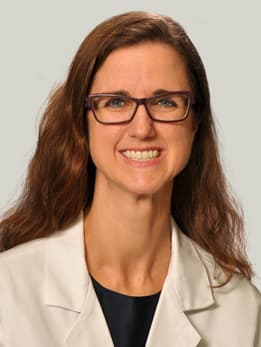
Nora Jaskowiak, MD
Nora Jaskowiak, MD, is an expert in breast surgery and breast cancer, and also specializes in the surgical management of endocrine disorders, including thyroid cancer and parathyroid conditions. She serves as surgical director of UChicago Medicine's Breast Center.
View Dr. Jaskowiak's physician profile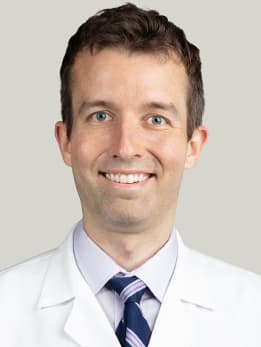
Frederick Howard, MD
Medical oncologist Frederick Howard, MD, is an expert in treating breast cancer. In 2024, Dr. Howard was named to the prestigious list of 40 Under 40 in Cancer, an award that recognizes him as one of the nation's most promising young oncology professionals and celebrates his contributions to improve the lives of those affected by cancer.
Learn More About Dr. Howard
UChicago Medicine Comprehensive Cancer Center
UChicago Medicine is designated as a Comprehensive Cancer Center by the National Cancer Institute, the most prestigious recognition possible for a cancer institution. We have more than 200 physicians and scientists dedicated to defeating cancer.
Learn More About the Comprehensive Cancer Center